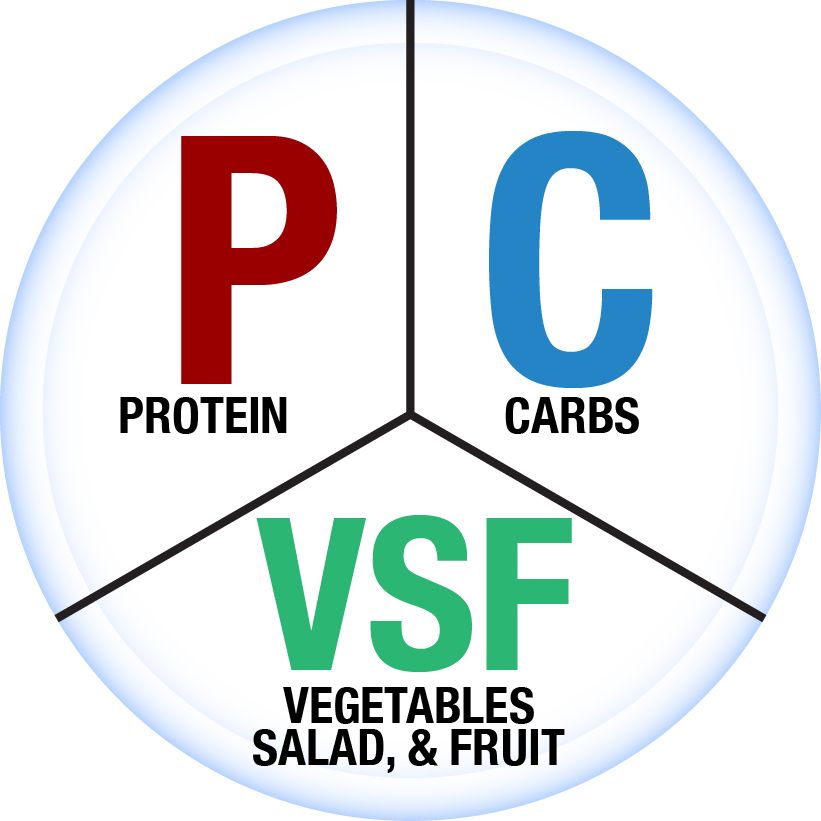Why is diabetes so hard to manage?
Why is diabetes so hard to manage? I was diagnosed with type II diabetes in early 2003 and since then I’ve been on something of a rollercoaster journey through “official” advice from medical practitioners, everything from sound hypotheses to way out there thoughts from the internet, and lots of well-meaning advice from friends and family. The problem is that hardly any of them agree on how the disease should be managed.
The medical profession seems to have a fairly consistent message: eat a balanced diet and increase your activity, and take various drugs to keep your blood sugar levels within the “normal” range. This is great advice until you start delving into the details, starting with what constitutes a balanced diet?

I’ve been shown the “plate of thirds” picture more times than I can remember. In fact I’ve been shown several different versions of it over the years.
While they may differ they do contain common themes: roughly a third carbs, roughly a third protein, and roughly a third fruit and veg. This sounds pretty simple to follow and I’ve managed to do it for several short periods with mixed results.
Now consider the testimony in the video below from Dr. Sarah Hallberg, Medical Director of the Medically Supervised Weight Loss Program at IU Health Arnett. This video echos advice I’ve heard from several sources.
If you can’t spare the 18 minutes required to watch the video (and I strongly recommend you invest that time) let me summarise: eat a low carb diet and your type II diabetes will be reversed.
That’s right, reversed. You will no longer have the disease. Well, sort of.
One of the things Dr. Hallberg notes in her talk is that the medical profession are convinced that diabetes cannot be reversed and their advice and approach with patients reflects that. They base their program of care on the assumption that you’ll be taking drugs to manage the disease for the rest of your life. She goes on to suggest (explain?) that their dietary recommendations don’t so much keep diabetes at bay but rather they pile on to increase your cells’ resistance to insulin.
Dr. Hallberg’s hypothesis — which is backed by her anecdotal experience — is that the resistance is caused by consuming more carbohydrates than the body needs.
So how much does the body need? Well, none, apparently, but this also depends on who you ask! The essential message from most sources is that while we don’t need carbs it’s the easiest way we have to provide our bodies with energy, which doesn’t make them the right choice.
So what have we learned so far? Well, Dr. Hallberg says we should significantly cut down on carbs in order to counteract insulin resistance. Sound like good advice?
Enter Dr. Neal Barnard, clinical researcher and founder of the Physicians Committee for Responsible Medicine (PCRM). Dr. Barnard’s hypothesis is — based on a plate of thirds measurement — 33% offset from Dr. Hallberg’s. The clinical researcher suggests cutting out animal products, because he believes it’s the fat that’s causing the insulin resistance.
He goes further and advocates eating as many carbs as you want. He ran a clinical trial with 99 people and had them “set the animal products aside and keeping the vegetable oils low.” He highlights one participant who, over the course of a year, lost 60lbs and was told he didn’t have diabetes anymore.
The other 33% of the plate of thirds is fruit and veg, and I think we can all agree that nearly everyone suggests eating more of that. Combine that with the anecdotal evidence above and you might be thinking that the answer is a low-carb, low-fat diet high is fruit and veg. That’s certainly where my thinking is right now, and what I’ve started experimenting with this week. So far the effects have been pretty positive.
The basic problem is that we have no idea what causes diabetes, which makes it next to impossible to determine the best way to manage the disease at least from a dietary point of view. I live with the hope that the answer will be found within my lifetime, but in the meantime I have no choice but to experiment on myself while defending my choice to ignore nearly all the conflicting advice I’m given in favour of discovering what works for me.
It’s incredibly frustrating!
 stut.blog
stut.blog